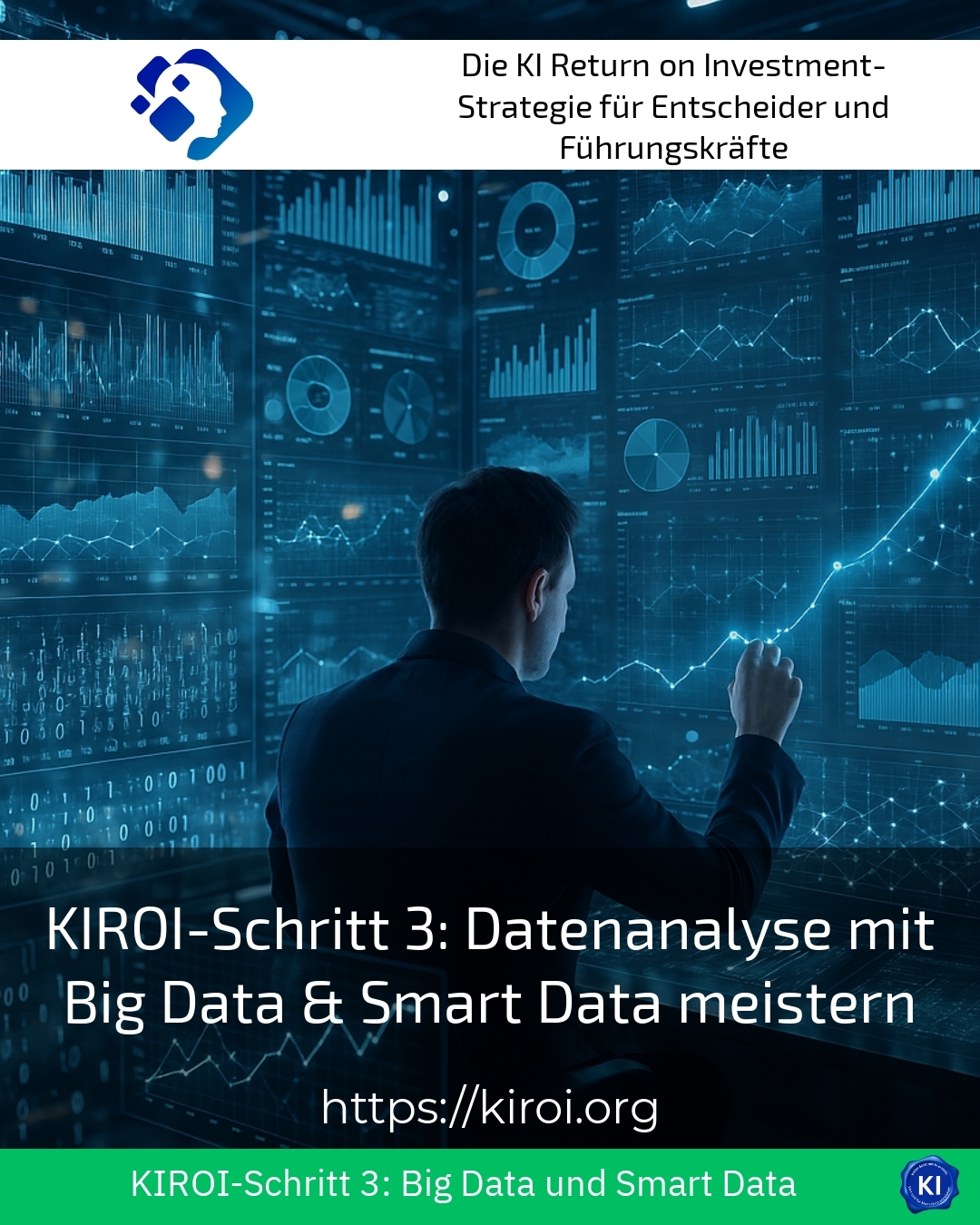The modern business world is increasingly characterised by data, and companies are faced with the challenge of using large amounts of information efficiently. Data analysis is an indispensable tool for gaining relevant insights for strategic decisions from big data and smart data. This method helps to understand complex interrelationships, optimise processes and provide forward-looking impetus.
The basics of analysing large amounts of data
Big data refers to the enormous amounts of data that are generated every day, for example through usage data from mobile devices, sensors in industry or online behaviour. The challenge lies in processing these huge amounts of data in such a way that they are not only stored but also analysed in a meaningful way. This is where data analysis comes into play, using special technologies to recognise patterns and enable data-based predictions.
For example, online retailers use data analysis to better understand their customers' purchasing behaviour and create personalised offers. In logistics, companies optimise stock levels and delivery times by analysing supply chain data. In the healthcare sector, too, large patient data sets are analysed to identify disease trends at an early stage and adapt therapies accordingly.
Various methods of data analysis are used for such complex tasks, including descriptive analysis, which describes past data, diagnostic analysis, which investigates causes, and predictive and prescriptive methods, which predict future developments and make recommendations for action.
Smart data: intelligent refinement for targeted insights
Smart data refers to the specifically prepared and high-quality data that emerges from big data. While big data describes the sheer volume of raw information, smart data focuses on added value through specific analyses. Irrelevant data is filtered out in order to utilise only the information that enables sustainable insights and well-founded decisions.
Industrial companies use smart data, for example, to analyse machine data in real time and plan maintenance at an early stage before breakdowns occur. In the energy sector, intelligent data analyses help to identify consumption patterns and thus increase the efficiency of grids. Marketing departments benefit from smart data by tailoring campaigns more precisely to target groups, thereby increasing customer satisfaction.
In this way, data analysis can not only create added value, but also secure competitive advantages. The challenge is to select the right technologies and methods in order to process the data volumes efficiently and prepare them in an understandable way.
Practical examples from the business world
In medium-sized manufacturing companies, for example, data analysis helps to monitor production quality and quickly identify weak points. Companies often report that they have been able to improve processes and reduce costs through the targeted use of smart data.
In traffic management, data analysis using sensors and mobile phone data provides important information to dynamically control traffic flows and avoid traffic jams. In the financial sector, big data analyses are used to detect attempted fraud and make risk-based decisions.
These applications show how diverse and practically relevant data analysis is in various industries and how it accompanies projects focussed on efficiency and innovation.
BEST PRACTICE with one customer (name hidden due to NDA contract) The company used data analysis to comprehensively analyse customer data. This enabled them to better target their marketing and significantly increase sales within a few months. At the same time, analysing the supply chain data improved warehouse management, which led to significant cost savings. The consultancy accompanied the project closely with customised workshops and continuous support in interpreting the data.
Tips for the successful implementation of data analysis projects
A successful data analysis project begins with a clear definition of the questions to be answered. This is the only way to identify relevant data sources and utilise them sensibly. It is important to use suitable technologies such as cloud solutions or specialised analysis platforms at an early stage in order to ensure storage and processing capacities.
Data quality is a high priority: only valid and well-prepared data delivers reliable results. Companies should therefore regularly check, cleanse and consolidate their data sets. It is also helpful to work with experienced experts who support both the technical implementation and the interpretation of the results.
Practical examples illustrate that participative approaches involving the specialist departments often lead to better results. This is because data analysis can only provide impetus if the insights gained are properly received by those responsible and incorporated into decisions.
Data analysis as a companion for complex projects
Whether in product development, marketing campaigns or process optimisation - data analysis can provide project managers with significant support. It helps to recognise risks at an early stage, understand trends and make better use of opportunities. Many clients report that targeted data analysis has enabled them to manage their projects more efficiently and achieve sustainable success.
In addition, methodical data analysis provides certainty when making decisions and creates transparency in increasingly complex working environments. This makes it an important companion for digital transformation and innovative projects.
My analysis
Data analysis is key to unlocking the value of large and diverse data sets. From the initial evaluation of large quantities to targeted processing and intelligent preparation into smart data - its importance is growing in all sectors. Practical examples make it clear that only those who analyse data in a targeted manner can successfully support complex projects and make sustainable decisions. Data analysis is therefore not just a technical tool, but a strategic success factor.
Further links from the text above:
Smart + Big Data | Artificial Intelligence [1]
What is big data analysis? | IBM [2]
Big data explained simply: definition and meaning | Expedition Digital [4]
For more information and if you have any questions, please contact Contact us or read more blog posts on the topic Artificial intelligence here.















